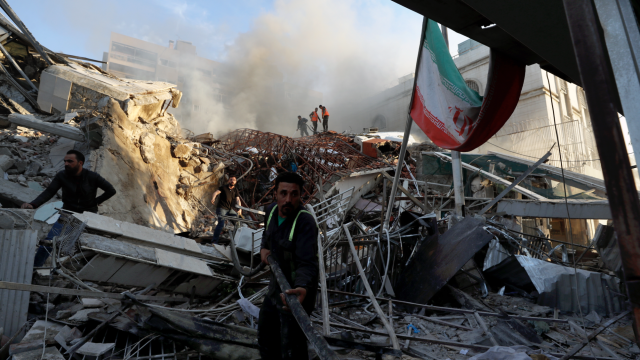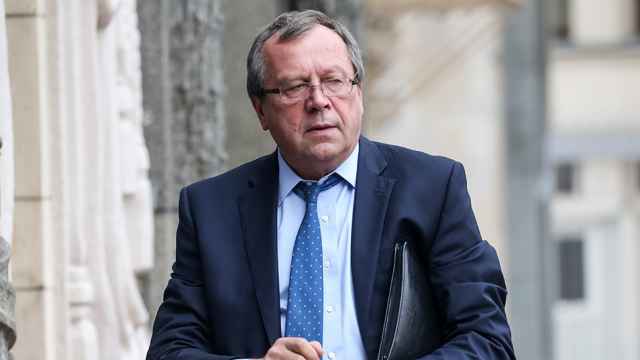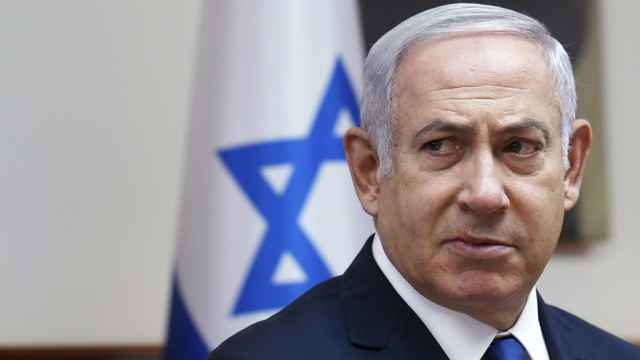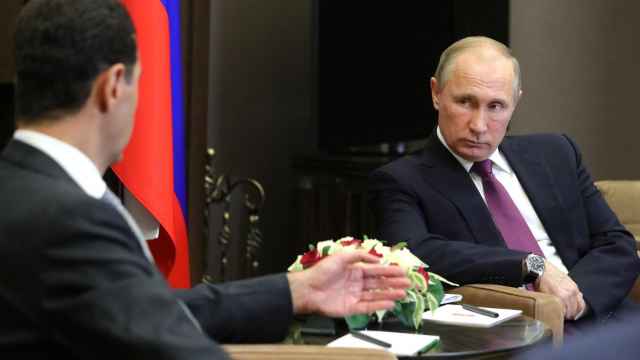This year could bring challenges for Russia’s role in the Syrian conflict, despite it having been at the forefront of efforts to resolve the crisis in the past.
With the regime in Syria becoming less likely to undergo a reshuffle and Iran reaping the benefits of its wide-scale involvement, Moscow might face difficulties in promoting its vision of a political settlement, while competition with Tehran could become more evident.
Threats of a military operation in Idlib, unresolved issues with refugees and expanding confrontation in Libya might introduce new twists to Russia-Turkey relations that would, nonetheless, be unlikely to change the stone-cold pragmatism at their core.
Russia could end up at a crossroads between its actual and declared goals in Syria.
Although Moscow champions countrywide political settlement, it also places a high premium on its strategic military stronghold in the Latakia region.
From the beginning of the aerial campaign, Russian officials have tried to abstain from answering the question of whether its ultimate goal is to restore Syria’s pre-war borders.
Last June, President Vladimir Putin said that Russia’s successes in Syria had exceeded his expectations, while emphasizing the need to stabilize the situation within the country. This, however, still raises questions of whether Russia actually believes in countrywide reconciliation.
Following the recapture of territories, Russian military police transferred them to the direct control of Damascus, which has been accused of launching vindictive policies.
Entrenched Iranian influence in Syria, and its documented practices of redrawing sectarian maps, suggests divergences between agreements sealed in Sochi and Astana and actual policies on the ground.
It is hard to believe that decision makers in Moscow are unaware of these repressive tactics and their potential long-term impacts on domestic security. It is more likely that there is little strategic clarity on what to do with the knowledge.
Given Russia’s vital interest in enduring stability in Syria, post-war realities on the ground create a dilemma of whether to pressure the regime to enact political reforms, or focus on the Latakia region.
Proactive diplomatic efforts and hard power investments suggest that political stability in Damascus and rehabilitation in the eyes of its neighbors are pillars of Russia’s long-term interests.
Regarding the post-conflict settlement, Moscow would like to protect secularism, encourage some form of power decentralization and boost political inclusivity. These goals, however, are increasingly challenged by Iranian entrenchments and Assad’s unwillingness to change.
Whereas four years ago Assad’s power pretexts seemed blurry, now the regime is resilient and less flexible.
Moscow might be able to apply additional pressure, spearhead political changes and diffuse Iranian influence by expanding its own cohort of official loyalists. But there are risks that the hermetic system could reshuffle or spiral out of control, and that increased competition with Tehran could challenge the current alliance-like relations.
Despite exercising powerful influence over the regime in Damascus, Moscow is growing concerned about competition with Tehran. In an attempt to capitalize on its investments, Iran recently asserted control over parts of Latakia’s container port, proceeded with plans to build a $460 million power plant and signed a number of lucrative contracts.
Whereas Russia wants to boost political reforms and some forms of reconciliation, Iran views Syria as a part of the so-called “axis of resistance” and opposes any changes within the political system that might challenge its influence.
The recent U.S. assassination of top Iranian military commander Qassem Soleimani might push Tehran to reenergize its presence in the Levant. That would not be good news for Moscow’s regional ambitions.
In effect, Russia will ultimately have to choose between pushing for political transformation or staying away from a messy domestic Syrian political scene that is becoming increasingly colored by sectarian shades.
The regime’s recent advancements in Idlib and Ankara’s decision to send troops to Libya suggest that relations might face unexpected twists.
Turkey remains alarmed about the YPG influence in Syria and Assad’s unwillingness to resettle refugees and guarantee their protection from reprisals.
The potential for a full-scale military operation in Idlib to trigger another exodus of millions who are currently trapped in the enclave is pushing Ankara to go all-in by threatening to use its proxies, and expanding stakes in the Libyan conflict.
With Russia and Turkey predictably betting on opposing sides, and being proactive in drafting their own ways of resolving the crisis, the Libyan case could exercise greater influence on future diplomatic exchanges surrounding Syria.
Russia believes that Turkey’s ultimate goal is to establish a buffer zone stretching across the entire border to shield it from Kurdish troops and new waves of refugees.
Without such protection Erdogan’s domestic resilience is at stake, which also increases the overall unpredictability surrounding his party’s political appeal.
Although Russia is striving to gradually resolve the issue of Idlib, and doesn’t want Turkey to reenergize its proxies, it likewise wants to keep dealing with the current administration and preserve a similar type of stone-cold pragmatism and level of predictability in negotiations.
Moscow also understands that Ankara’s actions are limited by the possibility of economic sanctions from the Trump administration.
In contrast, Turkey acknowledges that Russia is becoming increasingly challenged by Iranian entrenchments, and the regime’s newly discovered assertiveness that insists on faster and more resolute actions against the rebels.
With each side securing powerful bargaining chips, it is likely that we might witness advancements surrounding Idlib. We can also expect the expansion of buffer zones that, nonetheless, would follow similar pragmatic and situational patterns of exchange.
Possible developments in Syria might showcase Russia’s actual long-term goals in the Middle East, which still remain unclear.
With many predictions claiming that Moscow is more interested in boosting its regional outreach and balancing troubled relations with the West, the outcomes of diplomatic exchanges and events on the ground in Syria could serve as a litmus test for the actual goals of the military campaign.
A Message from The Moscow Times:
Dear readers,
We are facing unprecedented challenges. Russia's Prosecutor General's Office has designated The Moscow Times as an "undesirable" organization, criminalizing our work and putting our staff at risk of prosecution. This follows our earlier unjust labeling as a "foreign agent."
These actions are direct attempts to silence independent journalism in Russia. The authorities claim our work "discredits the decisions of the Russian leadership." We see things differently: we strive to provide accurate, unbiased reporting on Russia.
We, the journalists of The Moscow Times, refuse to be silenced. But to continue our work, we need your help.
Your support, no matter how small, makes a world of difference. If you can, please support us monthly starting from just $2. It's quick to set up, and every contribution makes a significant impact.
By supporting The Moscow Times, you're defending open, independent journalism in the face of repression. Thank you for standing with us.
Remind me later.








